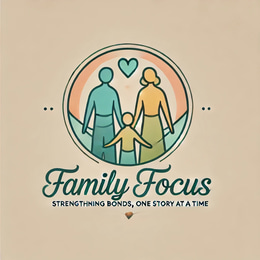How to Handle Toddler Tantrums Without Stress
Parenting a toddler can be one of life’s most rewarding experiences, but it comes with its fair share of challenges — and toddler tantrums top the list. From screaming fits to full-blown meltdowns in public places, these moments can leave parents feeling helpless and overwhelmed. The good news? With the right strategies, you can handle toddler tantrums without stress.


1. Understand Why Tantrums Happen
Tantrums are a normal part of toddler development. They often stem from:
Frustration: Toddlers have big emotions but limited ways to express them.
Hunger or Fatigue: Basic needs being unmet can trigger outbursts.
Desire for Independence: Toddlers crave control and autonomy but don’t yet have the skills to manage it.
When you understand the root causes, it’s easier to approach tantrums with empathy and patience.
2. Stay Calm and Composed
Your reaction sets the tone. Here’s how to maintain your composure:
Take a deep breath before responding.
Avoid yelling or getting visibly frustrated.
Remind yourself that tantrums are a phase and not a reflection of your parenting skills.
Staying calm helps de-escalate the situation and shows your child how to handle emotions.
3. Validate Their Feelings
Acknowledge your child’s emotions without giving in to unreasonable demands. For example:
Say, “I see you’re upset because you can’t have that toy right now.”
Use a calm, reassuring tone.
Validation helps toddlers feel understood and can reduce the intensity of their emotions.
4. Offer Choices
Toddlers often throw tantrums when they feel powerless. Giving them simple choices can restore their sense of control. For example:
“Do you want to wear the red shirt or the blue shirt?”
“Would you like water or juice with your snack?”
Make sure the options are acceptable to you, regardless of their choice.
5. Use Distraction Techniques
Redirect your child’s attention to something else. Some effective distractions include:
Offering a toy or book.
Pointing out something interesting nearby (e.g., “Look at that bird outside!”).
Engaging in a fun activity like singing a song or playing a game.
6. Set Clear Boundaries
While it’s important to validate feelings, it’s equally crucial to enforce boundaries. Consistency helps toddlers understand limits.
Use firm but gentle language: “Hitting is not okay.”
Be consistent with rules and consequences.
Boundaries teach your child about acceptable behavior while fostering a sense of security.
7. Be Proactive
Preventing tantrums is often easier than managing them. Try these tips:
Stick to a Routine: Predictable schedules for meals, naps, and playtime help reduce stress.
Provide Snacks: Keep healthy snacks on hand to ward off hunger-induced meltdowns.
Give Transition Warnings: Let your child know when a change is coming (e.g., “Five more minutes of playtime, then it’s time to leave”).
8. Model Healthy Emotional Regulation
Toddlers learn by watching you. Demonstrate how to handle frustration or anger:
Say, “I’m feeling frustrated, so I’m going to take a deep breath.”
Show patience and self-control in challenging moments.
9. Avoid Triggers When Possible
Identify common tantrum triggers and try to minimize them:
If your child gets upset in crowded stores, shop during quieter times.
If transitions are difficult, prepare them in advance.
While you can’t avoid all triggers, being mindful of them can reduce tantrum frequency.
10. Give Yourself Grace
No parent is perfect, and tantrums are a natural part of childhood. Celebrate small victories, and don’t hesitate to ask for support from friends, family, or parenting communities when needed.
Final Thoughts
Toddler tantrums may be inevitable, but they don’t have to be stressful. By understanding your child’s needs, staying calm, and using proactive strategies, you can turn tantrum moments into opportunities for growth and connection. Remember, this phase is temporary, and your efforts to guide your child through it will pay off in the long run.
Have your own tips for handling toddler tantrums? Share them below!
Contact Us
We welcome your comments and feedback. Please use the form below to submit your thoughts and suggestions.
